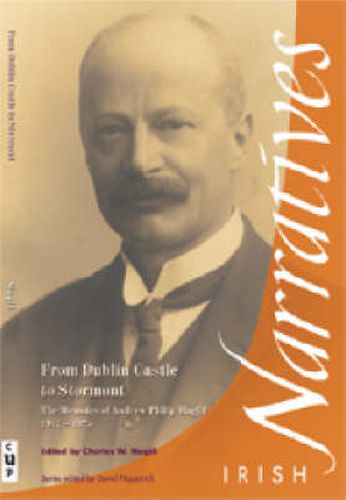Readings Newsletter
Become a Readings Member to make your shopping experience even easier.
Sign in or sign up for free!
You’re not far away from qualifying for FREE standard shipping within Australia
You’ve qualified for FREE standard shipping within Australia
The cart is loading…






Andrew Philip Magill was born in Dublin of mixed Ulster and Swiss descent. After a varied career in the Irish civil service, he moved to the Ministry of Home Affairs in Northern Ireland before resigning in 1925. As private secretary to Augustine Birrell, the Chief Secretary whose resignation was prompted by the 1916 Rising, Magill was well placed to observe the often bizarre workings of the pre-revolutionary Irish administration. His subsequent postings in Dublin and Belfast likewise made him a valuable witness of conflicts associated with revolution and partition. Magill’s memoirs provide insights into the problems and personalities he encountered as a senior civil official. They are also anecdotal and bristling with unexpected information about prominent politicians and administrators. These selections for the troubled period between 1913 and 1925, edited by Magill’s great-nephew, recreate the atmosphere and colour of the revolutionary period from a revealing but unfamiliar perspective.
$9.00 standard shipping within Australia
FREE standard shipping within Australia for orders over $100.00
Express & International shipping calculated at checkout
Andrew Philip Magill was born in Dublin of mixed Ulster and Swiss descent. After a varied career in the Irish civil service, he moved to the Ministry of Home Affairs in Northern Ireland before resigning in 1925. As private secretary to Augustine Birrell, the Chief Secretary whose resignation was prompted by the 1916 Rising, Magill was well placed to observe the often bizarre workings of the pre-revolutionary Irish administration. His subsequent postings in Dublin and Belfast likewise made him a valuable witness of conflicts associated with revolution and partition. Magill’s memoirs provide insights into the problems and personalities he encountered as a senior civil official. They are also anecdotal and bristling with unexpected information about prominent politicians and administrators. These selections for the troubled period between 1913 and 1925, edited by Magill’s great-nephew, recreate the atmosphere and colour of the revolutionary period from a revealing but unfamiliar perspective.